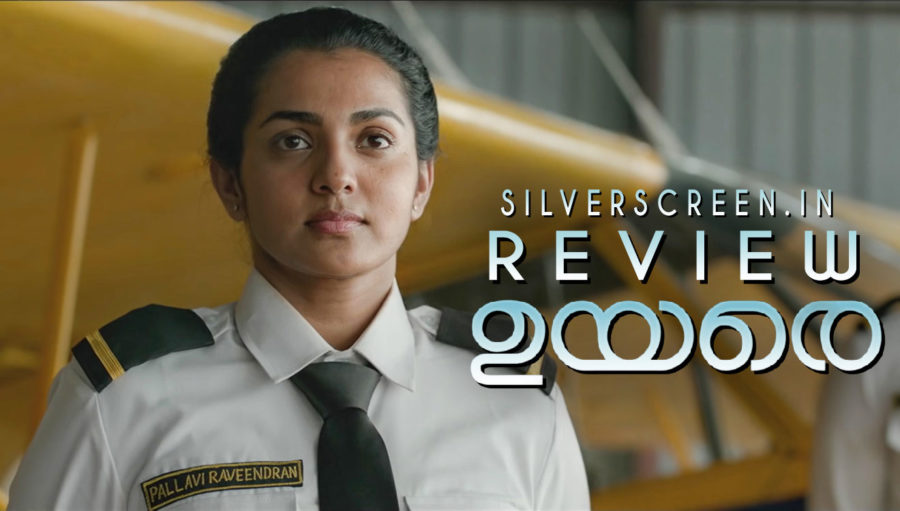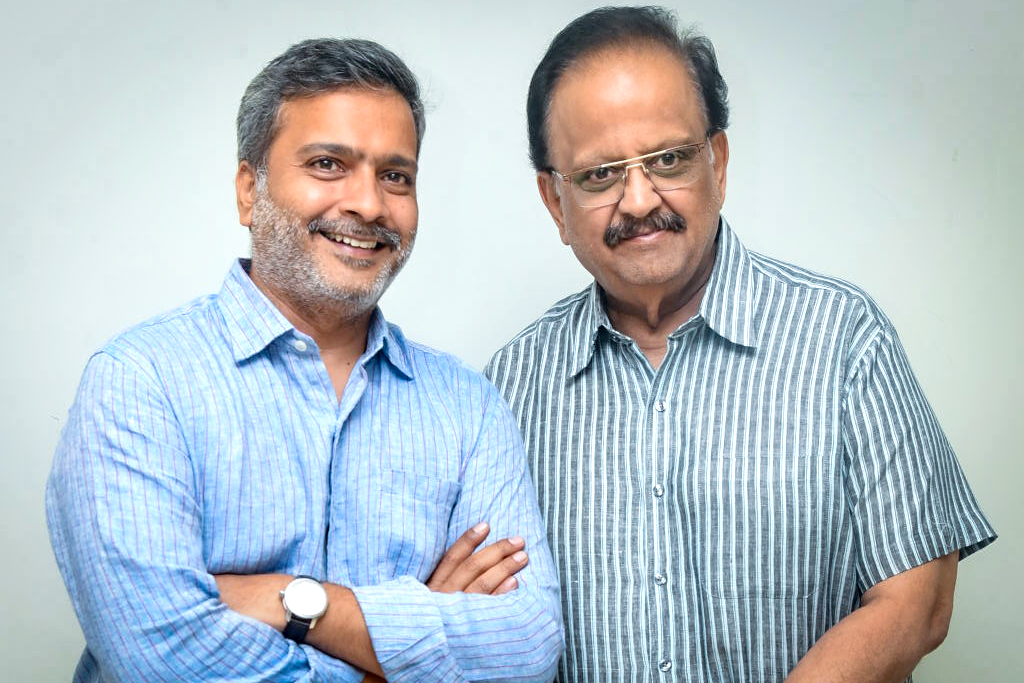Director: Manu Ashokan
Cast: Parvathy TK, Siddique, Tovino Thomas,
In a scene in the latter half of Uyare, Pallavi (Parvathy TK), an acid attack survivor, pulls a chair and sits in front of the kin of her attacker, and reveals her face to him. In the scene that preceded, she had been trying to hide it from the society, embarrassed and scared. But here, in front of him, the burns represent her wrath. Director Manu Ashokan chooses to use no dialogue, but go for close-ups of faces – angry, determined and shocked – and a shot of her father rising from her seat to gently touch her shoulder. This brief, quiet moment might be the most furious scene Malayalam cinema has seen in a while. It has an edge of empathy too.
Uyare‘s narrative crisscrosses between the present and past, the Earth and the sky. The pilot of a passenger aircraft on the way to Delhi has collapsed. Much to the surprise and shock of the officers on the ground, Pallavi (Parvathy TK), a flight attendant, volunteers to bring the situation under control. While they go about arguing if she can or cannot save the flight, an elaborate flashback sequence details the incredible life she has lived.
Ashokan and his writers, Bobby and Sanjay, don’t try to shake free from the existing style of story-telling, but use the old familiar tropes with a tasteful restraint. It hits the precise emotional spots. They trace her past to the day she decided to be a pilot. She is a 14-year-old NCC cadet, full of spunk and innocence. She asks questions when her teachers want pin-drop silence and discipline. She wakes her father up from sleep to declare to him that she wants to be a pilot when she grows up. She is instantly lovable. She has always been a courageous person. She falls in love with a viper which could be deemed as a misstep, but if you look a little deep into it, it is also a reflection of her strength. At such a tender age, she placed humaneness over superficial qualities. The narrative is constructed in such a way that we grow to trust her wholeheartedly and root for her by the time we see the proceedings inside the flight in close-ups.
The background score is mawkish and relentless, especially in the scenes after Pallavi undergoes a brutal acid attack. But the semi-realistic approach that the film adopts otherwise – the credit must go to the writing – in portraying the characters as ordinary people whose only super-power is their burning ambition and a will to survive, lends the film a lot of charm. In a scene where Pallavi’s father (Siddique) starts to stalk the man who attacked his daughter, you are immediately reminded of umpteen similar instances where ordinary law-abiding citizens, out of the blue, turn into criminal master-minds, make perfect plots and seek revenge. But this man is just a helpless father who wants to do something to avenge his daughter. The caution he takes while following Govind must be out of fear, and not a part of a great plan he has chalked out.
Uyare is largely shouldered by its talented lead actors who gets a lot of mid-shots and close-ups where they have to hold their expressions carefully. But in the process, the film brutally undermines the crowd that constructs the background of the scenes. Their reactions to the main characters and situations are wooden. For instance, when Govind verbally harasses Pallavi inside a flight, the passenger seated right next to him can be seen having his beverage and minding his own business. It isn’t just insensitive, but very strange since it is humanly impossible to not react to such an altercation. Later, when she comes out of the cockpit after accomplishing a huge heroic act, her colleague can be seen walking out the plane as though it’s just another day. Vishal’s (Tovino Thomas) friends, whom we meet at a get-together in Kochi, are plastic and out of place in a movie that is otherwise very human. The writing takes convenient routes to get Pallavi back to the flight every time she is driven out of it. For instance, her rendezvous with Vishal and Govind are concocted coincidences.
Equally or more problematic is the portrayal of the air traffic control room where several pivotal moments in the film happens. It might remind one of the police control room in Traffic where most of the dialogues were written to echo the thoughts that go through the audience’s mind. “The ambulance might not reach the hospital on time,” says one, while another person counters, “It will if they take this route instead of that!”
In Uyare, the chief officer played by Prathap Pothen is a detractor, a foil to the courage that Pallavi embodies. He vehemently argues that she should get out of the cockpit, which is strange since he doesn’t have in hand a better option that her. By turning an important character into a caricature to amplify the qualities of the protagonist, the film slips into the zone of mediocrity.
However, it’s in good sense that the film keeps the attacker in the shadow, without fleshing out his character and exploring his motivation behind committing this crime and defending it. It is like an act of justice in a movie about a survivor of gender-based violence – grabbing from the criminal every power to express himself. But that, counter-intuitively, pulls down the film from reaching a greater height. In the song montage (Ne Mukilo), it is hinted that something might be brewing within the young man which, later, blows up in the form of a brutal attack on his lover. The post-attack sequences portray Govind like a habitual criminal, sans any sign of the unusual poignant heart that Pallavi loved. The film goes the easy way of getting his father take up the responsibility – “I was away at work. I didn’t pay enough attention to him” – rather than looking at him as a full-grown adult with issues. On another note, by stressing on the father figure – Govind’s father, Pallavi’s father and Vishal’s father – while mothers are nearly or fully absent from the picture (Both Pallavi, and her friend Sarya’s mother are dead) the film aligns with the kind of cinema it wants to take on.
Recommended
The main cast is incredibly good, especially Parvathy as Pallavi Raveendran, internalizing the complex emotions that she undergoes. Siddique’s performance as the grieving father might be the best of the lot, though. He taps into the psyche of a widower who is, more than often, bewildered by the situations life throws at his face. In his scenes with Pallavi, it’s she who takes the center-stage, and the father is a quasi-invisible presence which could have rendered the character dry if not for the actor’s nuanced performance. Siddique has been the loudest voice of the patriarchal actor’s association in Malayalam film industry. By casting him as the feminist father to a hero portrayed by Parvathy, Uyare has pulled off a brilliant prank on the meta level.
*****
The Uyare review is a Silverscreen original article. It was not paid for or commissioned by anyone associated with the movie. Silverscreen.in and its writers do not have any commercial relationship with movies that are reviewed on the site.



